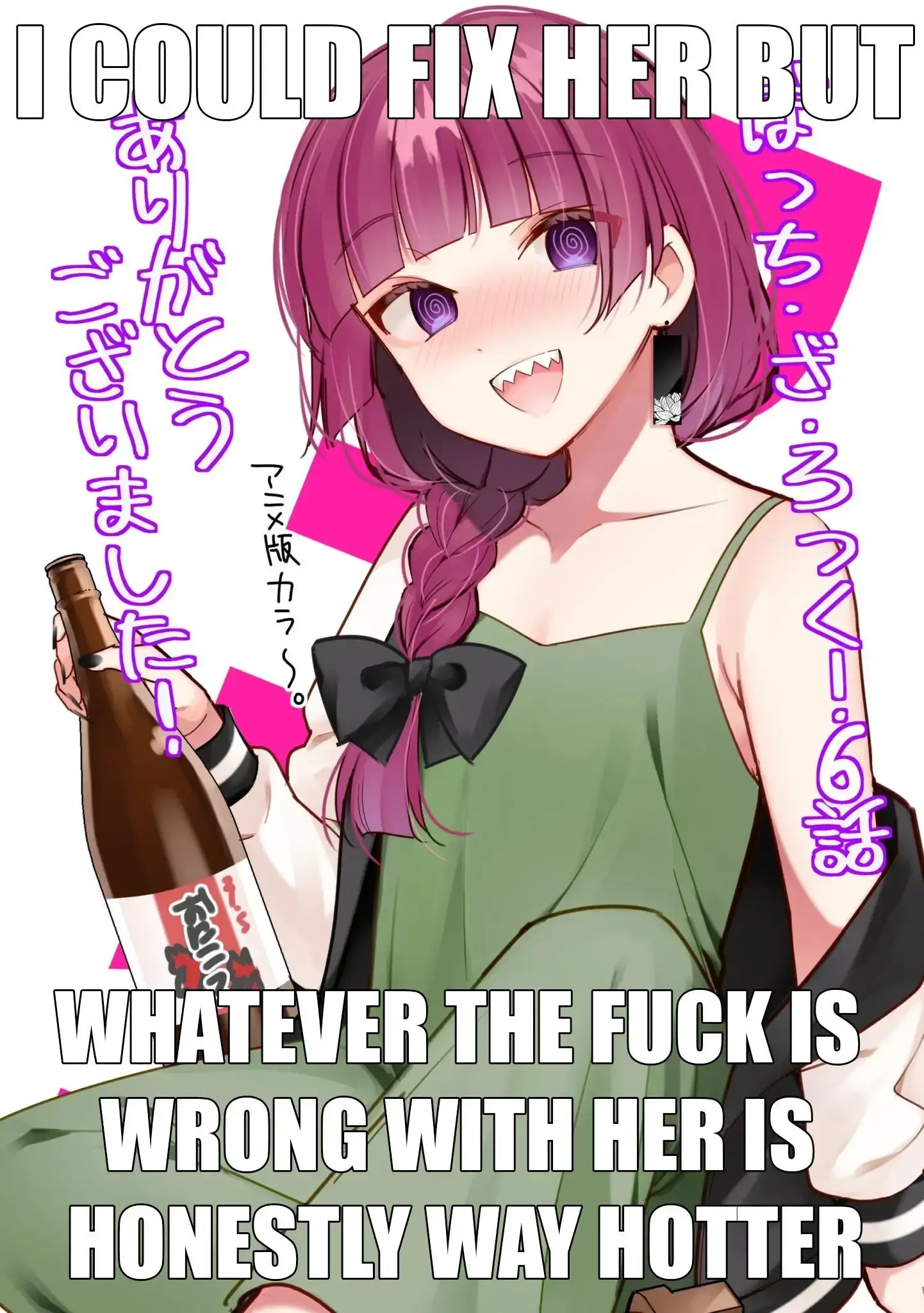this post was submitted on 24 Apr 2024
1 points (100.0% liked)
anime_irl
1572 readers
2 users here now
A community for sharing relatable real-life situations depicted in anime.
Rules
-
All post titles must be "anime_irl".
-
All posts must be an image, gif, or video of relatable situations depicted in anime.
-
No sexually explicit images (i.e. full nudity). Lewd/ecchi must be tagged as NSFW.
-
All posts and comments must abide by the AniSocial Content Policy.
(If you would like to moderate this community, please send a message to the admin.)
founded 1 year ago
MODERATORS
you are viewing a single comment's thread
view the rest of the comments
view the rest of the comments

So I got the left side, あいがとうございました、which is close to "Thank you" but with い instead of り?
I don't understand that substitution. I must be missing something.
The text on the right, はっら、ざ、ろっく、I have no idea. The は could be ば?
A guess.
wa-ra, za, ro-ku
Laugh, za, six. No idea what "za" is alone.
Just a novice Japanese student practicing.
Correct me せんぱい。
It's り not い
Compare the lengths of the right-hand stroke between the り in ありがとう and the い in ございました
It's helpful to get it from two sources, your effort is greatly appreciated.
ありがとうせんせい!
It says
Bocchi za rokku is the name of the series (Bocchi the rock)
And the ri/i thing is just a handwriting thing. You can tell it's meant to be ri because the right side is much longer than left side
Edit: also, warra wouldn't be translated as laugh. The stem of verbs can't stand on their own. You will only see warau (laugh) as warai, waratte, warayou, etc., but never as just wara. It also wouldn't really make sense to make wara into warra. Some people will add the tsu to emphasize certain syllables, but in this case, it would just end up sounding weird and unnatural. And plus there's no real reason to emphasize syllables in this case
Thank you! Helpful!
ぼっち ざ ろっく
ち rather than ら And double consonant on rokku
Bocchi za rokku
Which apparently gets anglicized as Bocchi the Rock, the title of a manga.
Not sure what the deal is with あいがとう instead of ありがとうthough. Unless it's a form of thank you I haven't encountered or just a typo.
Thank you!